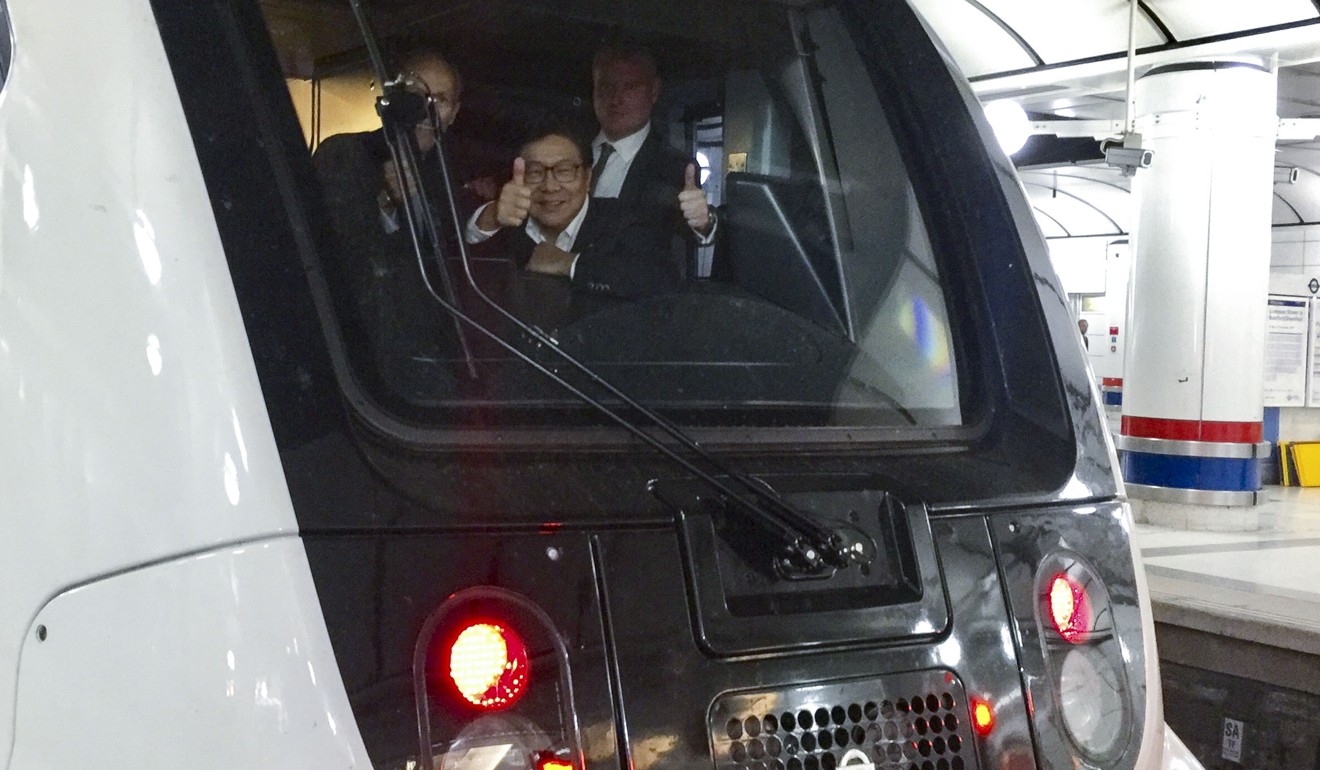
Hong Kong’s newest export? MTR looks to sell trains-and-property business model in UK and Sweden
Transport giant chases deals for London Euston station, as well as trying to replicate its local station mall success in small Swedish town
Hong Kong’s rail operator is looking to export its trademark trains-and-property business model abroad, in an attempt to strengthen its expansion into competitive markets in Europe and beyond.
MTR Corporation chairman Frederick Ma Si-hang said the company was in talks to develop commercial and residential property above railway stations in London and Stockholm, where he said managers were not yet maximising stations’ commercial potential.
How Hong Kong’s MTR takes on local rail giants in Europe
It is understood that MTR will work with UK developer Canary Wharf Group to bid later this year to redevelop Euston station, one of London’s busiest railway hubs. Euston will be the terminal of the UK’s first domestic high-speed rail line.
Sources said the Euston project would cover 22 hectares, mixing property development with rail services, with new buildings above and around both the current Euston station and the future high-speed rail station. MTR Corp is separately bidding for the franchise to run the high-speed line between London and Birmingham, along with mainland company Guangshen Railway.

Depending on which contract is awarded first, the Euston station project or another one in Stockholm stands to be MTR’s first attempt to implement its model outside Hong Kong.
“Some companies in London, Sweden and Australia are interested in our property and rail business model and approached us already,” Ma said during a visit to MTR Corp’s rail services in London last week.
“When evaluating these projects, we stick with our principles. We need to have good partners for a long-term partnership, and a reasonable return from investments.”
MTR in David and Goliath battle with Swedish incumbent on Gothenburg-Stockholm trains
Tapping overseas markets is a way for the company to branch out of Hong Kong, where the formerly booming business of property development above train stations has declined in the past few years.
Since its inception in 1975, MTR Corp’s approach has been to work with property developers to build homes, shops and even hotels above train stations. The company then uses profits from its properties to subsidise the building of railways, and the properties in turn increase demand for rail services.
MTR Corp bosses see the overseas businesses as a new source of growth, with the portfolio spanning the UK, Sweden, Australia and key mainland cities such as Beijing, Shenzhen and Hangzhou. The overseas business, which started about a decade ago, contributed HK$779 million last year, or 8.2 per cent of MTR’s underlying profit of HK$9.44 billion for the year.
Jeremy Long, chief executive of MTR’s European business, said negotiations with the London transport authority were under way on some projects.
“I will be surprised if [in] two years and we haven’t committed to any rail and property projects by then,” Long said.
In Sweden, MTR Nordic chief executive Peter Viinapuu said the company was shortlisted out of seven bidders to redevelop a train station in the suburban town of Upplands Vasby, just under 30 minutes from Stockholm, on commuter lines already run by MTR Corp.
Breaking the glass ceiling: MTR hires more female train drivers for Crossrail services in London
“This project is the first of its kind in Sweden, which will set a model for the future,” Viinapuu said.
In a country like Sweden, which places priority on quality of life, he said people in the past had not pushed hard on developing properties above train stations.
“Five years ago, when we mentioned the property development idea to the governments, there were a lot of suspicions. They said: ‘You can do it in Hong Kong, but we are in Sweden’,” Viinapuu said. “After some discussions and education, they are more open about it now.”
Viinapuu said MTR was the only bidder with experience of running the trains and developing homes and commercial properties, with its competitors either construction companies or developers.
MTR consortium extends right to operate Metro Trains Melbourne for another 10 years
He added that the Swedish appetite for any development above train stations would be for something similar to that of the PopCorn shopping mall in Tseung Kwan O, which is a combination of a 345,000 sq ft for shopping and dining, two hotels, serviced apartments and a transport interchange atop the MTR station.
Dr Billy Mak Sui-choi of Baptist University’s business school said whether MTR Corp would succeed in exporting the business model would depend on a number of factors, such as governments’ offers, local people’s appetite to live close to train stations, the cost of building a rail line and population density at the station.
“Not many are like Hong Kong and mainland Chinese who prefer convenience, and live above trains stations,” he said.
Denise Tsang reported from London and Stockholm

